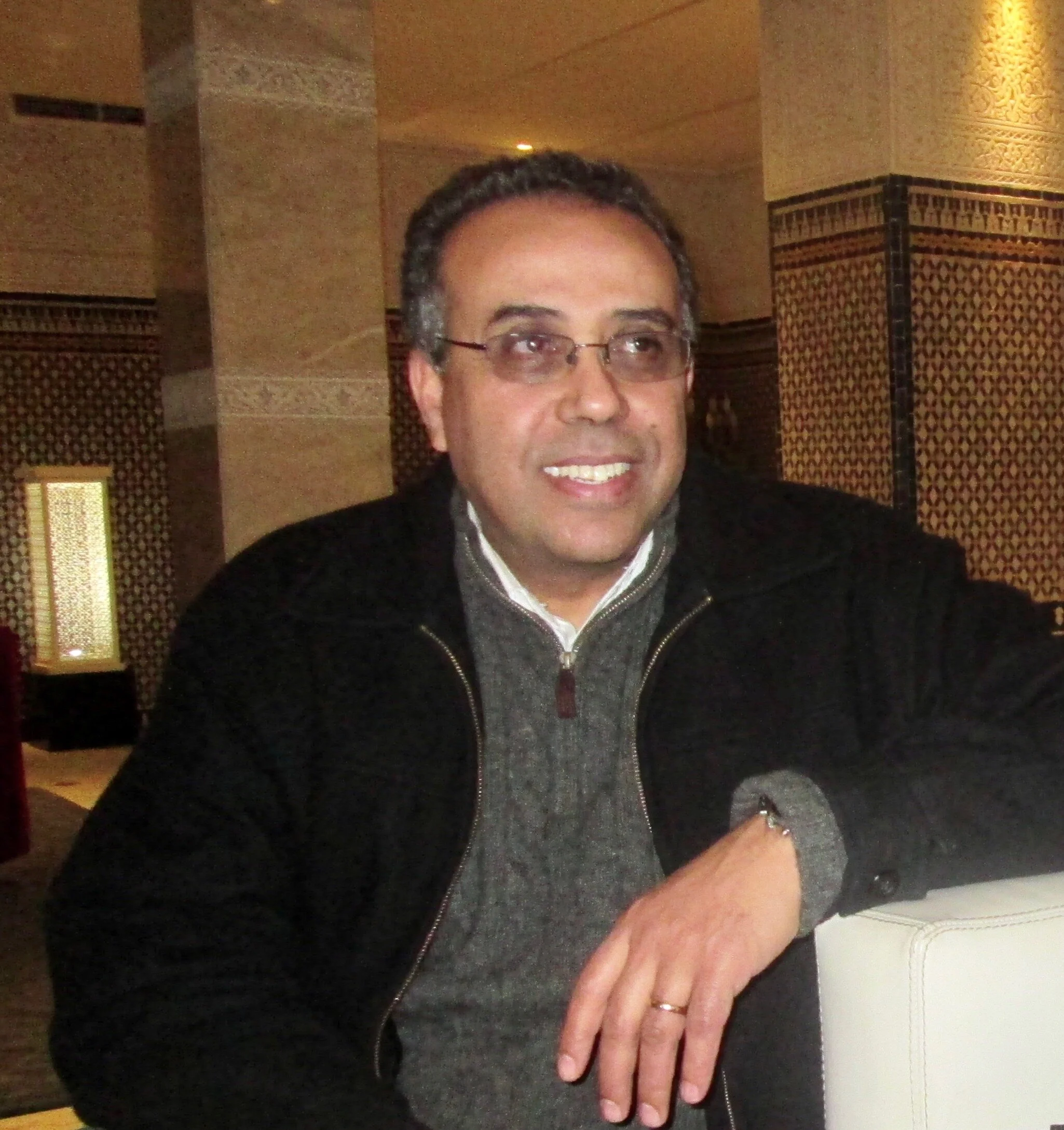Fragments
By Mbarek Sryfi
I
I laid the end pieces on the old pine dining room table
Graced with a warm patina
And I composed the border of my puzzle—my story
The colors looked so challenging
But I had invested a lot of effort in the process
And I so badly wanted to finish it
II
Tired, bored
I needed a break
I caught a distant note coming from the kitchen
And The Persistence of Memory filled the room
I turned to my wife
Have I lived up to expectations?
Is it time to let go and move on?
Wearing a look of utter persistence
From where she was standing, it was time to
Think of Dali’s clocks
So, I collected my thoughts and
Found myself remembering
But I have promises to keep and miles to go
And I resumed arranging the fragments
Within the frame I had composed.
How would you describe your poetry aesthetic? What draws you to poetry?
Poetry is a magnificent world of metaphors and it has been part of my everyday life for as long as I can remember. I am appreciative of my surroundings, attuned to the smallest images, details and sounds, even to a word or a sentence I once read or heard. I am conscious of words, endlessly trying to tame, or rather twist them, to suit my storytelling and I am also enchanted by others’ encrypted narratives. Such visual and aural appeals of happenstance are what draws me to poetry and fuels my poetic aesthetic. Metaphors are the fulcrum that anchors my narrative; my poetic experience conjures up images from my past and present and hinges on whether these images amount to something. My writing style is authentic, sincere, and humbling at every stroke of the pen. I have been exposed to a vast array of poetic influences. At an early age, I was introduced to oral poetry and classical Arabic poetry, then French poetry, and took up Anglophone poetry in college and I haven’t stopped since. Some of my greatest influences, with whom I am in constant dialog, include William Carlos Williams, Pablo Neruda, Wallace Stevens, Yeats, Anna Akhmatova, Mark Strand, Joseph Brodsky, Jack Gilbert, James Baldwin, Charles Simic, and Charles Bukowski.
How does your experience as a first-generation immigrant impact your poetry?
As a first-generation expat, I strive to bring to light what has followed me as well as what I have carried with me and reflect on the present. I am constantly revisiting my upbringing and the ideals of Moroccan culture and tradition I have learned to fill the void. The feeling of in-betweeness makes my life exciting, a unique experience to journey into my different physical and mental spaces, and poetry helps me restore some kind of equilibrium in my life. And poetry turns into a purgative endeavor and shapes me, both as a poet and a person. Constantly searching for clues to my own identity, for instance endlessly mustering spirits, drains me, yet never impedes my yearning to writing. Migrant perception of space and the self, accepting and recognizing absence and disorientation, are some of the themes interrogated, portrayed in my poetry writing.
You are a lecturer in foreign languages as well as a poet. What is your experience using the medium of English to write poetry as opposed to composing in Arabic?
I oscillate between moving and permanent states. And the intersecting cultures and languages I embody are reflected in the act of writing. I am in a constant self-regenerating mode. The fluidity of my internal frontiers contributes to the reinvention of the self. Like a tightrope walker, each time I tread one of my interdependent languages, in some kind of reunion, I find myself continuously in the process of domesticating that language, be it Arabic or English. My writing is backed up and balanced by the languages I speak, the cultures I have been exposed to, and the geographies I have visited. I do compose in Arabic as well and a book of those poems will be coming sometime in October.
What is translating other writers work like? How do you work with words or metaphors that have no direct translation or point of reference?
Translating other writers work is, like Poe’s pendulum, a quest to navigate the realm of two languages in an attempt to be reckoned with, a trudge through a labyrinth of grammatical structures…and metaphors that morph into something new, either through foreignization or domestication, granting the work a life of its own. I find such a challenge more compelling, for the process itself recounts the translator’s investigation into the distrustful contrivance of the recreation of a new text.
Are there themes you see continually emerging in your work? How about themes that you have not explored but would like to explore?
A preoccupation with the human condition is my main concern, but I also have a penchant for capturing the spirit of celebrated life. The feelings of absence, loss, assimilation and self-regeneration, memory, belonging, exclusion, identity – among others – are all incorporated in my poetry. I don’t like to capitalize on any of these, but rather summon them as motifs for the intricate stage that is my life. Like an endless mustering spirits, it drains you. Anxious intermeshing of incantations of the past are entrusted in me to challenge my own future poetry. I am invested in exploring the most hushed and most difficult subjects in our history as a nation and speak out forcefully against themes of inequality and injustice.
Where can readers find more of your work? Buy your books?
I have published with the University of Arkansas Press, Syracuse University Press, Éditions L'Harmattan, and Moonstone Press. All the books can be found on Amazon.
Mbarek Sryfi is a lecturer in foreign languages and serves as the Arabic language Coordinator at the University of Pennsylvania. He earned a B.A. in English Language and Literature and a M.A. in Education, holds a teacher certification from the Ecole Nationale Superieure, and earned a PhD in Literature from the University of Pennsylvania. His work has been widely published in many journals and magazines, and anthologies including Al-Arabiyya, Banipal, CEELAN Review, Metamorphoses, Middle Eastern Literatures, The Journal of North African Studies, Translation Review, World Literature Today, and has contributed to A New Divan— a lyrical dialogue between East & West, among others. Sryfi has co-authored Perspectives: Arabic Language and Culture in Film (2009), co-translated four books, The Monarch of the Square (2014), The Arabs and the Art of Storytelling (2014), The Elusive Fox (2016), The Blueness of the Evening (2018), and published two poetry collections, The Trace of a Smile (a chapbook that shared first place in a poetry contest in 2018) and City Poems (2020).
Catfish” John Wojtowicz grew up working on his family’s azalea and rhododendron nursery in the backwoods of what Ginsberg dubbed “nowhere Zen New Jersey.” Currently, he works as a licensed social worker and adjunct professor. He has been featured in the Philadelphia based Moonstone Poetry series, West-Chester based Livin’ on Luck, Mad Poets Society, and Rowan University’s Writer’s Roundtable on 89.7 WGLS-FM. Find out more at: www.catfishjohnpoetry.com.



